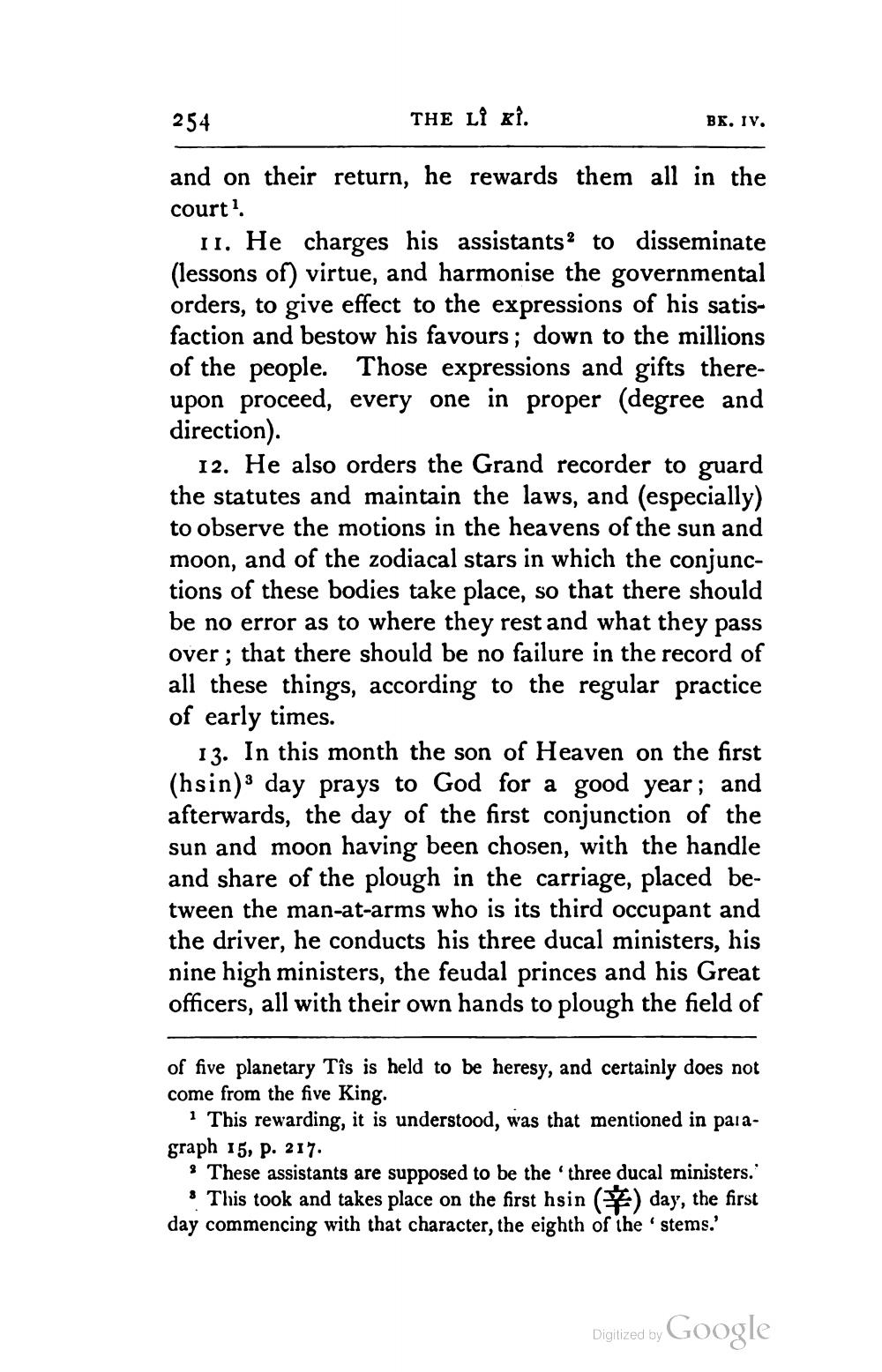________________
254
THE LI ki.
BK, IV.
and on their return, he rewards them all in the court1
11. He charges his assistants? to disseminate (lessons of) virtue, and harmonise the governmental orders, to give effect to the expressions of his satisfaction and bestow his favours; down to the millions of the people. Those expressions and gifts thereupon proceed, every one in proper (degree and direction).
12. He also orders the Grand recorder to guard the statutes and maintain the laws, and (especially) to observe the motions in the heavens of the sun and moon, and of the zodiacal stars in which the conjunctions of these bodies take place, so that there should be no error as to where they rest and what they pass over; that there should be no failure in the record of all these things, according to the regular practice of early times.
13. In this month the son of Heaven on the first (hsin)day prays to God for a good year; and afterwards, the day of the first conjunction of the sun and moon having been chosen, with the handle and share of the plough in the carriage, placed between the man-at-arms who is its third occupant and the driver, he conducts his three ducal ministers, his nine high ministers, the feudal princes and his Great officers, all with their own hands to plough the field of
of five planetary Tîs is held to be heresy, and certainly does not come from the five King.
This rewarding, it is understood, was that mentioned in paiagraph 15, p. 217.
. These assistants are supposed to be the 'three ducal ministers.
% This took and takes place on the first hsin (*) day, the first day commencing with that character, the eighth of the stems.'
Digitized by Google




